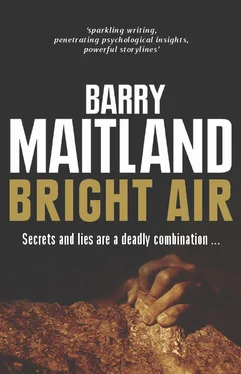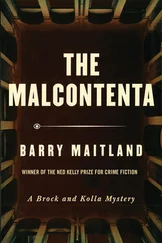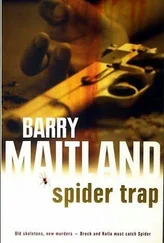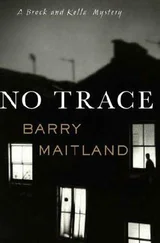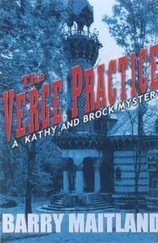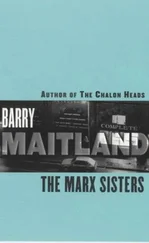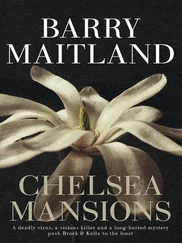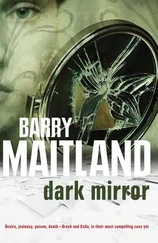Barry Maitland - Bright Air
Здесь есть возможность читать онлайн «Barry Maitland - Bright Air» весь текст электронной книги совершенно бесплатно (целиком полную версию без сокращений). В некоторых случаях можно слушать аудио, скачать через торрент в формате fb2 и присутствует краткое содержание. Год выпуска: 2009, Издательство: Allen & Unwin Pty Ltd, Жанр: Криминальный детектив, на английском языке. Описание произведения, (предисловие) а так же отзывы посетителей доступны на портале библиотеки ЛибКат.
- Название:Bright Air
- Автор:
- Издательство:Allen & Unwin Pty Ltd
- Жанр:
- Год:2009
- ISBN:нет данных
- Рейтинг книги:5 / 5. Голосов: 1
-
Избранное:Добавить в избранное
- Отзывы:
-
Ваша оценка:
- 100
- 1
- 2
- 3
- 4
- 5
Bright Air: краткое содержание, описание и аннотация
Предлагаем к чтению аннотацию, описание, краткое содержание или предисловие (зависит от того, что написал сам автор книги «Bright Air»). Если вы не нашли необходимую информацию о книге — напишите в комментариях, мы постараемся отыскать её.
Bright Air — читать онлайн бесплатно полную книгу (весь текст) целиком
Ниже представлен текст книги, разбитый по страницам. Система сохранения места последней прочитанной страницы, позволяет с удобством читать онлайн бесплатно книгу «Bright Air», без необходимости каждый раз заново искать на чём Вы остановились. Поставьте закладку, и сможете в любой момент перейти на страницу, на которой закончили чтение.
Интервал:
Закладка:
It was in fact a wonderful tour de force, and deserved the spacious leafy surroundings it had once enjoyed, and which were apparent in the second picture, taken almost a hundred years ago. It showed the building newly completed as The Moorings, the home of a broker and financier and his large family, who were all posed outside the front. They looked immensely pleased with their grand new house in the best residential suburb of the inner city, on the ridge of Potts Point, high above the boats in the bays of Sydney Harbour all around, but I knew that disturbances were on their way. Within a year, Kingsclere, the first Manhattan-style apartment building in Sydney, was being erected nearby in Macleay Street, and the character of the leafy suburb would begin to change forever. And a couple of years after that the war in Europe would be under way. I wondered how many of those teenage boys, ranged in ascending height next to their father, ended up on the Western Front.
But it was the Depression that did for the owners of The Moorings, apparently, and they had departed by the time of the third picture, taken at the start of the Second World War. The house had clearly gone downhill, turned into bed-sits for dockyard workers and navy people, and its decline continued into the 1960s, when it was photographed by Gordon Harris, newly arrived in Australia and armed with a small inheritance and some experience in the hotel trade in Inverness. The Moorings became the Harris Hotel, and almost immediately Gordon met and married my Aunt Mary. There was a picture of them both outside the hotel soon after their wedding, and it was clear that Gordon, something of a dreamer, had made a very astute choice in the practical and hard-working woman at his side. Together they turned the place into a refuge for visitors to Sydney, its reputation passed on by word of mouth between naval administrators visiting HMAS Kuttabul at the end of the point, lawyers attending the Family and Supreme courts, and country politicians with business in state parliament. When Gordon died, Mary just kept on going. The final photograph showed her at the front door, the house now shouldered by much taller, blunter neighbours, inner-city apartment blocks that overshadowed the remnants of its old gardens.
It had always had a magical, enveloping character in my mind, a true sanctuary, and it was the first place I’d thought of when I returned to Sydney. But, for all its sheltering homeliness, it couldn’t keep out the world, nor, it seemed, my own past.
There was some roast beef in the kitchen fridge, and I carved a few slices and made myself a sandwich. I took it to Mary’s sitting room, leaving the door slightly ajar so that I could hear anyone coming into the hotel. Helping myself to another Scotch from her bottle, I sat down in one of her plump armchairs with the folder on my knee. I didn’t want to open it because I could guess what would confront me, but eventually I had no choice. I turned over the flap and there it was, a picture of Luce. Even though I’d anticipated the effect, it still punched the breath out of me. As I stared at that familiar face, a happier version of the one I’d said goodbye to, a detached part of my mind coolly told me that I’d avoided this moment for four years, taken every kind of evasive action to put it off. In the matter of Luce’s death I hadn’t even got past stage one of grieving. I was still in denial.
Perhaps it was the same with all the deaths I’d experienced-Grandpa’s, Uncle Gordon’s, Mum’s-all numbed, blanked out, never really confronted. But Luce was different, the first really important relationship in my life not framed by family ties, but freely chosen, miraculously given, then tossed aside.
The picture was an enlarged photocopy from a newspaper report, captioned Climbing tragedy: young scientist named . I think they’d got the picture from her father, taken probably at the time of her twenty-first birthday, for she was wearing a gold locket that had belonged to her mother and which he gave her on that day. She had a slightly cheesy smile as if for a special photo occasion, and the corners of her eyes were creased with love. And so alive, so brimming with life. I couldn’t bear it and quickly turned the page.
To be met by the same picture again, smaller this time, with the accompanying report below.
Police today released the name of the young woman missing on Lord Howe Island after a climbing accident and now presumed dead. Lucy Corcoran, 22, was a member of a university scientific field-study team surveying seabird breeding colonies on the steep cliffs below Mount Gower at the south end of the idyllic island. The team leader, biologist Dr Marcus Fenn, described how Corcoran, a very experienced climber, had become separated from her companions on the afternoon of Monday 2 October, before falling to the ocean, a hundred metres below where they were working. Islanders were joined yesterday by crews from boats in the Sydney to Lord Howe yacht race, recently arrived at the island, in searching for Lucy’s body. However, local fishermen say that strong currents around the island, as well as recent shark activity, make it increasingly unlikely that her remains will be recovered. A police officer from Sydney has arrived on the island to assist local police in preparing a report for the NSW Coroner. The university has issued a statement expressing deep regret and announcing that it will hold its own investigation into the circumstances of Miss Corcoran’s accident.
Recent shark activity … Didn’t that seem a bit gratuitous? How would her family have felt, reading that? And what did it mean, had become separated from her companions ?
I read on, through several other pages of photocopied press cuttings, from the first tentative report of an accident to the summary of the coroner’s findings six months later. Much of it was repetitive, some contradictory, but as I read I also began to recall things Luce had told me about the expedition at the time. I remembered her explaining that birds migrating down the Tasman Sea between Australia and New Zealand really only had two islands available on which to rest, feed, mate and breed-Lord Howe and Norfolk. They were thus the focus of intense bird activity, and important centres for scientific study. Marcus Fenn had led teams to Lord Howe in previous Septembers as part of an ongoing research program, mostly comprising honours and postgraduate students from the zoology courses he taught at the university. In that particular year he had the unusual circumstance that three of the students in his honours tutorial group-Luce, Curtis and Owen-were Alpine-grade climbers, and he had decided to use them to extend the study into areas that had previously been inaccessible, on the southern cliffs. The fourth climber, Damien, who was doing a joint science/law degree, had joined them for the final two weeks of the four-week field trip, so as to make up two climbing pairs.
From what I could gather from the press accounts, as well as some notes Anna had included from the inquest she’d attended, the accident had happened on the final day of the expedition. Damien had been sick that morning and stayed behind, while Marcus Fenn and the three other climbers were taken by a local fisherman, Bob Kelso, on his small boat to the foot of the southern cliffs below Mount Gower, where they had been studying a colony of masked boobies and other seabirds. The climbers were put ashore and began to scale the cliffs, while Marcus returned with Bob Kelso to the main settlement of Lord Howe, at the north end of the island, where the scientists were renting a cottage. At about two o’clock that afternoon Marcus received a radio message from Curtis, saying there had been an accident. He later described how the climbers had been working on a rocky shelf a hundred metres up the cliff, where the birds were nesting. The shelf appeared stable and safe, and they had worked on recording details of the colony with their body harnesses unattached to the climbing ropes, because of the risk of snagging and disturbing the nests. After lunch Luce moved off on her own to check some nests further across the cliff face. She had rounded a stone outcrop, out of sight of the other two, when they heard a cry, followed by the sound of falling scree. Hurrying over to the place, they discovered that a section of the shelf appeared to have collapsed, sending Luce down into the ocean below. There was no sign of her in the water or on the rocks.
Читать дальшеИнтервал:
Закладка:
Похожие книги на «Bright Air»
Представляем Вашему вниманию похожие книги на «Bright Air» списком для выбора. Мы отобрали схожую по названию и смыслу литературу в надежде предоставить читателям больше вариантов отыскать новые, интересные, ещё непрочитанные произведения.
Обсуждение, отзывы о книге «Bright Air» и просто собственные мнения читателей. Оставьте ваши комментарии, напишите, что Вы думаете о произведении, его смысле или главных героях. Укажите что конкретно понравилось, а что нет, и почему Вы так считаете.
